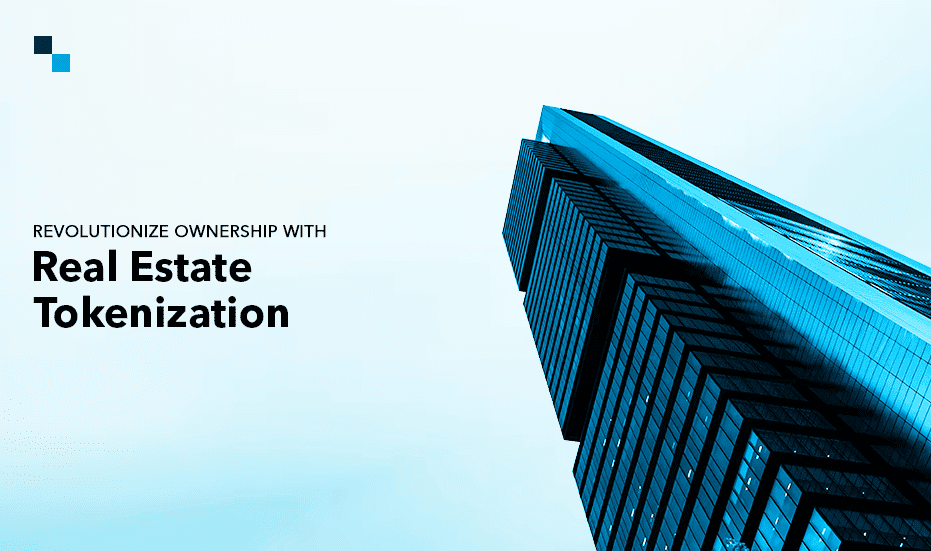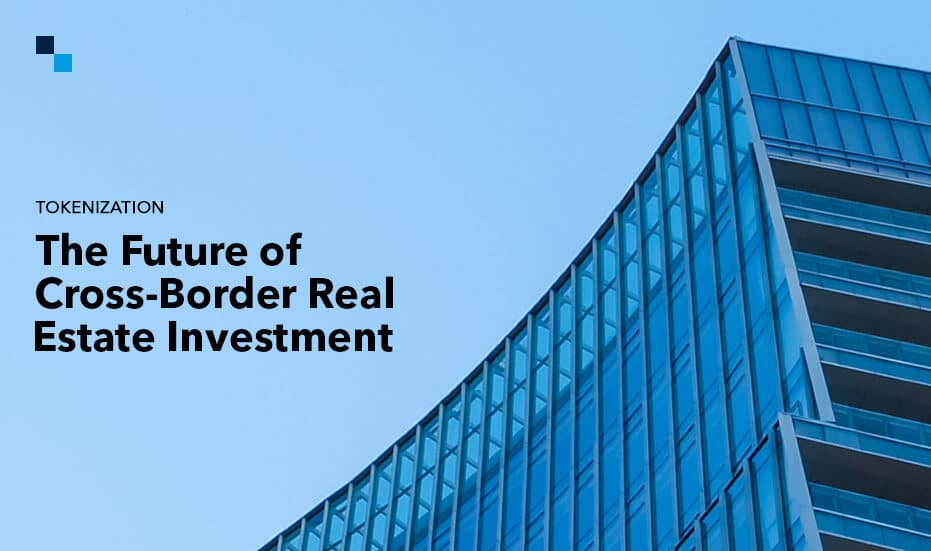
ICO Development- What Are The Different Types, Trends & Success Secrets?
April 18, 2024
How to Develop a Sustainable NFT Game
April 18, 2024In 2018, the St. Regis Aspen Resort in Colorado made headlines by becoming the first major real estate asset to sell security tokens, raising a staggering $18 million through the sale of Aspen Coins. The pioneering move marked a significant shift in the real estate investment landscape, akin to the transformative impact of REITs, making real estate investing more accessible and dynamic for the public.
Since then, the momentum behind real estate tokenization has surged, particularly catching the attention of multifamily investors and owners. The Commercial Observer aptly describes the process of tokenizing property as representing property rights on the blockchain ledger through crypto-tokens, essentially digital assets built on another cryptocurrency’s blockchain. This revolutionary approach allows investors to divide assets into smaller units of ownership, offering small to midsize investors the opportunity to invest in fractional ownership of properties and diversify their portfolios.
Advantages of Real Estate Tokenization
Let’s delve deeper into the key developments surrounding the tokenization of real estate assets, focusing on the perceived benefits that have fueled its rapid adoption:
- Enhanced Liquidity: Tokenizing a real estate asset greatly enhances its liquidity, enabling investors to buy and sell tokens much like trading REITs on the open market. This newfound liquidity provides owners and investors with increased access to capital, unlocking opportunities that were previously inaccessible.
- Transparency: Leveraging blockchain technology ensures unparalleled transparency in real estate transactions. The public ledger nature of blockchain makes all transactions and ownership details easily accessible and searchable, fostering trust and accountability in the market.
- Fraud Reduction: By utilizing a non-fungible blockchain backbone, the risks associated with fraud and illicit activities are significantly mitigated. The immutable and transparent nature of blockchain transactions adds layers of security and authenticity to real estate tokenization.
- Cost Efficiency: Digital token sales are far more efficient and cost-effective compared to traditional real estate closing processes, which often incur substantial expenses. The streamlined nature of tokenized transactions translates to cost savings for all parties involved.
- Elimination of Intermediaries: Tokenized real estate transactions eliminate the need for numerous intermediaries such as lawyers and brokers, enabling direct peer-to-peer transactions between buyers and sellers. This streamlined process expedites transactions and reduces complexity.
The Current State of Real Estate Tokenization
The Real Estate Tokenization Market showcases robust growth, valued at US$ 3.8 Billion in 2024 and forecasted to ascend with a CAGR of 2.90% towards US$ 26 Billion by 2034. This surge reflects a paradigm shift in real estate investment, leveraging blockchain for enhanced liquidity, transparency, and global accessibility.
The current real estate tokenization market in the U.S. is witnessing notable developments, especially in the multifamily sector. Reports highlight a 250-unit multifamily apartment complex in Dallas that recently introduced tokenized investment options, raising $6.5 million from investors for a $47 million project. The advantages of tokenization, as articulated by the project owner, include streamlined paperwork, automated processes, and enhanced liquidity through secondary market trading.
Furthermore, a range of marketplaces specializing in tokenized real estate assets has emerged, including RealT, Vesta Equity, Vave, LEX Markets, and DigiShares. These platforms are facilitating the seamless exchange and management of tokenized real estate assets, further catalyzing the adoption of this innovative investment approach.
Experts in the field foresee blockchain platforms revolutionizing various aspects of real estate, from smart contracts and due diligence to property management and leasing. Mark Ventre of Stepp Commercial emphasizes the multifaceted utility of blockchain in real estate, envisioning it as an immutable digital repository encompassing transaction history, title documents, permits, and more. Similarly, Nick Halaris, founder and President of Metros Capital, anticipates a paradigm shift with fractionalized, tokenized real estate interests trading in deep liquid markets globally, accessible to investors irrespective of their accreditation status.
Let’s see various Real Estate Tokenization Trends
Real estate tokenization is rapidly transforming the way we invest in property, shattering traditional barriers and opening doors to a more accessible and dynamic market. But beyond the core benefits of enhanced liquidity and transparency, a wave of innovation is further shaping the landscape. Let’s delve deeper and explore the various exciting trends that are propelling real estate tokenization towards a thrilling future.
Tokenization of Sustainable Properties
- Focus on Green Buildings: A growing trend involves tokenizing eco-friendly buildings with green certifications or those that meet sustainability standards. This caters to environmentally conscious investors seeking impact alongside returns.
- Example: A platform like “GreenToken” could tokenize a portfolio of LEED-certified buildings, attracting investors who prioritize environmental responsibility along with financial gain. Investors could receive additional benefits like voting rights on sustainable practices within the building’s management.
Real Estate NFTs (Non-Fungible Tokens)
- Unique Properties with Added Value: While not strictly tokenization (as NFTs are not divisible), some ventures are exploring using NFTs to represent ownership or unique aspects of a tokenized property. This could be for historical landmarks, luxury penthouses, or properties with artistic significance.
- Example: A historic mansion could be tokenized, with a limited number of unique NFTs representing ownership of specific features like the grand staircase or a frescoed ceiling. These NFTs could offer special privileges or experiences for the owners.
The Rise of Fractional Co-Ownership Communities
- Community-Driven Investment: Tokenization could facilitate the creation of co-ownership communities for specific property types like vacation homes or ski chalets. Investors could collectively own the property and share usage rights based on their token holdings.
- Example: A platform like “CoOwn Estate” could tokenize a beachfront villa in a tropical location. Investors could purchase tokens representing ownership shares and schedule their vacation time to enjoy the property throughout the year.
Metaverse Integration and Virtual Property Representation
- Bridging Physical and Digital Worlds: The burgeoning Metaverse could see integration with real-estate tokenization. Tokenized properties could have corresponding virtual representations within the Metaverse, offering unique experiences or utility to token holders.
- Example: A tokenized skyscraper in a major city could have a digital twin in a popular Metaverse platform. Token holders could access exclusive virtual experiences within the skyscraper’s digital replica or even rent out virtual space for events or advertising.
Unveiling Hidden Value with Big Data
- Leveraging Big Data: Real estate tokenization platforms can leverage vast sets of data (Big Data) to provide investors with deeper insights into potential properties.
- Example: A platform like “BrickMark” could analyze historical rental data, property maintenance costs, and market trends in a specific location. This data can be used to create more accurate valuations for tokenized properties and predict future performance, empowering investors to make informed decisions.

Virtual Reality (VR) & Augmented Reality (AR): Redefining Property Viewings
- Virtual Tour with VR and AR: VR and AR offer immersive experiences for potential investors to virtually tour tokenized properties, regardless of location.
- Example: Imagine a platform like “Tokenized Estates” partnering with a VR company. Investors can explore 3D virtual tours of luxury apartments in Dubai or beachfront villas in Bali from the comfort of their homes using VR headsets. AR can also be used to overlay property information and data points onto real-world views of a property during physical tours.
Artificial Intelligence (AI): Streamlining Processes and Making Informed Decisions
- Automate Tasks with AI: AI algorithms can be integrated into real estate tokenization platforms to automate tasks like due diligence, property valuation, and tenant screening. AI can also analyze market data to predict rental income and identify potential investment opportunities.
- Example: A platform like “PropTech.AI” could utilize AI to analyze legal documents, identify potential risks associated with a tokenized property, and generate automated reports for investors. AI can also be used to dynamically adjust token prices based on real-time market fluctuations.
Internet of Things (IoT): Smart Properties for Smarter Investments
- Get Valuable Insights with IoT: The Internet of Things (IoT) refers to the network of physical devices embedded with sensors that collect and exchange data. This data can be used to improve property management and provide valuable insights for token holders.
- Example: A tokenized apartment building could be equipped with IoT sensors that monitor energy consumption, water usage, and even occupancy rates. This data can be used to optimize maintenance schedules, reduce costs, and potentially increase rental income for token holders. Additionally, investors could receive real-time updates on the property’s condition and performance through an IoT-connected dashboard.
Final Words
Exciting trends in real estate tokenization, such as sustainable property tokenization, real estate NFTs, fractional co-ownership communities, and Metaverse integration, highlight the ongoing innovation and creativity within the industry. These trends not only enhance investment opportunities but also pave the way for unique and immersive experiences for token holders.
As we witness the convergence of blockchain technology, real estate, and digital assets, the future of real estate tokenization appears dynamic and promising, offering investors a diverse range of options to participate in this transformative journey.
Looking to develop a robust Real Estate Platform? Discuss your requirements with Antier and get a free consultation!



